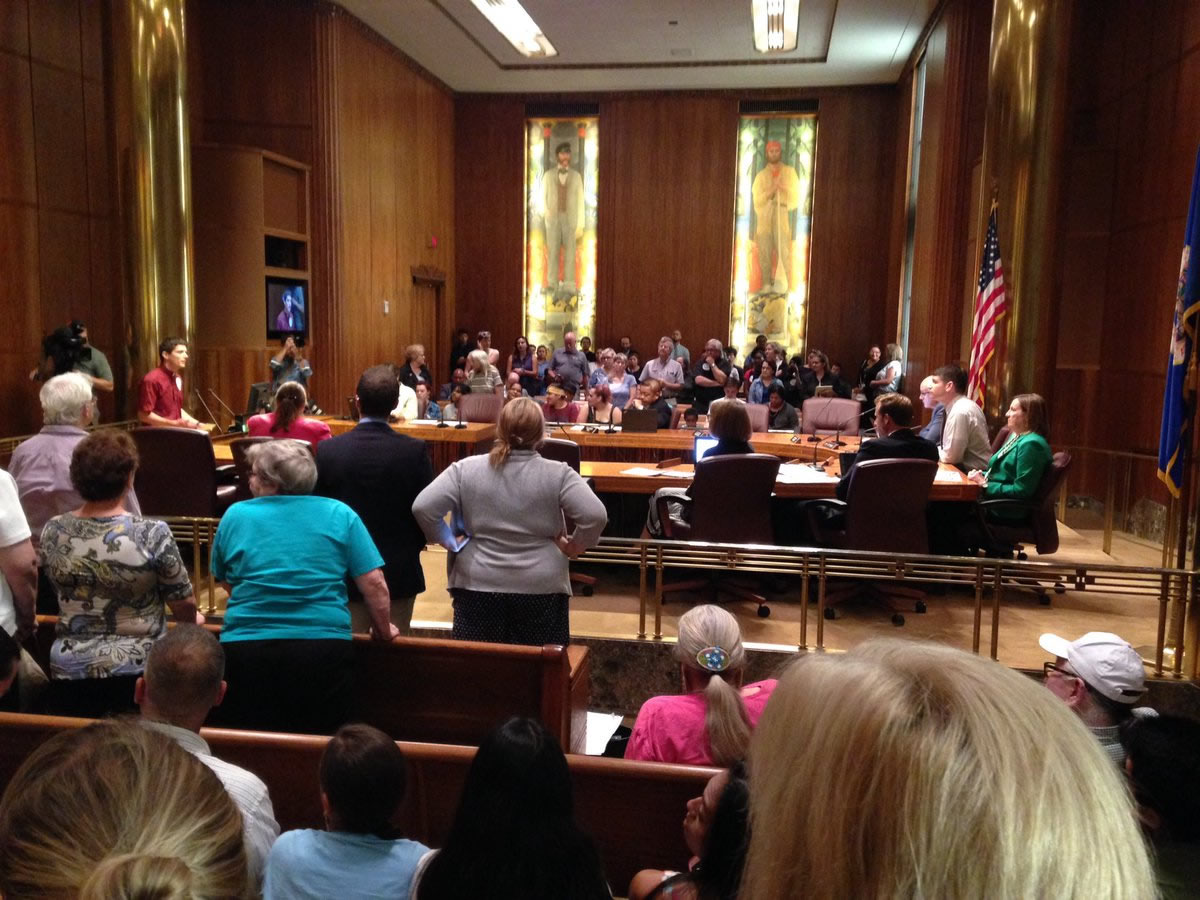

Share
Advocates of a $15 minimum wage in Minneapolis and an earned sick and safe time ordinance in St. Paul expressed disappointment as city officials delayed moving these measures forward.
In Minneapolis, Mayor Betsy Hodges announced Wednesday the city would appeal a Hennepin County judge’s ruling to put a $15 minimum wage charter amendment on the November 2016 ballot. Judge Susan Robiner said the City Council’s action to block the amendment, taken earlier in August, lacked basis in Minnesota law.
In making the appeal, City Attorney Susan Segal said the vote on $15 “is in conflict with Minnesota statutes and the Minneapolis charter, which contains no provision allowing such initiatives.”
The Minnesota Supreme Court will hear the appeal, which faces a tight deadline. Items to be placed on the ballot are supposed to be submitted by Aug. 26.
The Minneapolis Star Tribune reported that Ginny Gelms, the county’s elections manager, said the county will be able to afford the city some flexibility; a decision reached by Sept. 1 or 2 should be timely enough to ensure that an item could be placed on the ballot and go through a proofing process before being printed in time for absentee voting to open Sept. 23.
Members of the Minneapolis $15 campaign condemned the decision to appeal, saying on their Facebook page, “Minneapolis city officials are continuing to defend big business’ profits … Big business will continue to use every tool at their disposal to try to defeat $15 an hour and defend poverty wages. We have only 11 weeks to win the most substantial victory for Minneapolis low-wage workers in decades. Everyone can play a role!”
The campaign is organizing volunteers to knock on doors, make phone calls, put up posters and host events through a website.
In St. Paul, the measure to require employers to provide earned sick and safe time appears poised to pass, but was delayed Wednesday when the City Council changed the language of the amendment. The procedural delays means a vote will not be taken until Sept. 7.
The ordinance would require all St. Paul employers to provide workers with one hour of paid sick time for every 30 hours they work, with sick-time earnings capped at 48 hours per year.
An estimated 70,000 workers would benefit and St. Paul would join about 25 other cities nationwide – including Minneapolis –with a sick-time rule on the books.
Advocates of the sick time measure expressed their disappointment with the delay through social media and by standing in protest in the City Council chambers as the vote was taken.

